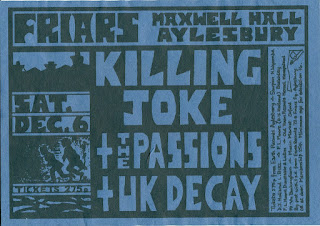"a Simon Reynolds level culture blog" ^^^^^^^^^^^^^^^^^^^^^^^^^^^^^^^^^^^^^^^^^^^^^^^^^^^^^^^^^^^^^^^^^^^^^^^^^^^^^^^"my brain thinks bloglike"
Sunday, November 26, 2023
RIP Geordie
Monday, November 20, 2023
RIP Catherine Christer Hennix
Spinner of one of my favorite sound-spaces of recent times - "The Well-Tuned Marimba". From Selected Early Keyboard Works.
An interview with the composer-performer-poet-mathematician. From 2020, at Tone Glow, conducted by Joshua Minsoo Kim.
Another interview with the composer-performer-poet-mathematician. From earlier this year, at o bo, conducted by Nora Fulton.
Catherine Christer Hennix's most recent - possibly final - release, on Blank Forms Editions.
Release rationale / bio:
The fourth release in Blank Forms Editions’s initiative to chart the ever-expanding musical practice of Catherine Christer Hennix, Solo for Tamburium captures the composer’s most recent major work. Hennix plays an instrument of her own creation, a keyboard interface controlling a suite of eighty-eight recordings of precision-tuned tambura, creating a sweeping and continuous flow of rich harmonic interplay. This piece, documented in Berlin at MaerzMusik 2017, carefully draws upon the fundamental perceptual effects of sound, forming an exacting and cathartic electronic drone. Densely-layered timbral textures and continuous overtone collisions create a maze-like sonic landscape, thrusting the listener into what Hennix calls divine equilibrium or a distinctionless state of being.
Since the late 1960s, Hennix has created a massive and innovative body of work spanning minimal music, computer programming, poetry, sculpture, and light art—pushing the technical and conceptual boundaries of these media toward singular ends. She was part of the downtown music school in New York and has worked extensively with some of its key figures, including Henry Flynt and La Monte Young. In the ’70s, Hennix studied the nature and use of harmonic sound as a disciple of Pandit Pran Nath, a master of the Kirana tradition of classical Hindustani music. The exceptionally designed tamburas of Pran Nath were central to her intensive investigations, as was the devotional practice of carefully tuning and sounding the instruments in a continuous and even flow—both have guided her work with sound ever since.
In 1976, at Stockholm’s Moderna Museet, Hennix presented a pair of groundbreaking works that came to define her ensuing practice. With the Deontic Miracle—a group composed of Hennix, her brother Peter, and the Swedish percussionist Hans Isgren—she performed a series of modal compositions for Renaissance oboes, sheng, and harmonic feedback distortion. On this same occasion she premiered an equally significant body of solo work for keyboard, including the only public presentation of The Electric Harpsichord (1976), a piece that marks the beginning of Hennix’s characteristic style of playing, where dense sonic textures gradually emerge from the multilayered interplay of harmonic construction and dissolution.
Solo for Tamburium represents a pointed revisitation of her endeavor to map the non-gravitational harmonics of modal musics—among them raga, maqam, and the blues—onto a tuned keyboard. Since the debut of this piece in 2017 she has continued to develop the work, reshaping and presenting it in a variety of contexts, including at Blank Forms in New York and the Bourse de Commerce — Pinault Collection in Paris in 2022. For Hennix, to approach modality as a dynamic process is ultimately a contemplative practice. Through it, embodied attunement to harmonic vibration gives rise to epistemically transformative states, opening new ways of knowing and being.


